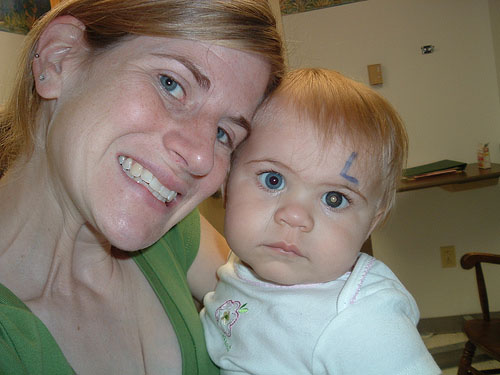
Cancer, Loss, Change
Fortunately, this is not a transformation that Rowan has to endure, although her childhood will certainly involve different narratives than those of the children around her. Her story promises to be more of difference than of loss. Not so for my wife and I. We lost our "normalcy." We lost the comfort of rhetorical support. We lost our selves. [Note 4]
Thanks to social media, my wife and I did not, and do not, have to undergo this transformation alone. In addition to a supportive family and good friends, the few face-to-face encounters we had during treatments with other parents, and Meg and Rowan's Tuesday visits to Tampa's exemplary Children's Cancer Center, had social media putting us in contact with other families coping with retinoblastoma, childhood cancer, and the terrible transformations they engender. In the face of such uncertainty, we wanted others to help validate and construct our new life's narrative. In the process, the narrative of our lives (and the specter of bleak endings) becomes enmeshed in a network of altered narratives, to the extent that being-in-network operates alongside (and perhaps overrides) the linear-teleologic imagining of coming-to-be. It is alongside this that I began to sense that perhaps we didn't need to craft a new narrative as much as we needed to find a new network. In all likelihood it's both: a new narrative within a new network. Social media helped facilitate both.
Social media offered rhetorical support by providing us with material to remix into our new story. It also provided us with people to affirm this story. It provided a venue for sharing: complaints about doctors, hospital bureaucracy, fears, frustrations (particularly about meeting a child just in time to learn they will die), loss, the difficulty of rotating a prosthetic eye (my wife and I can actually "one-time" this problem now—talk about the abject transforming into the mundane), hope, hopelessness, detachment, victories, remissions, celebrations, and milestones.